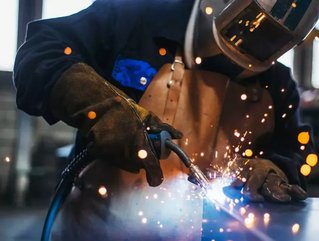Breakthrough; Lowering emissions in steel manufacturing

Just as Bill Gates warns us that climate goals may hit a roadblock when it comes to manufacturing, most especially when it comes to steel and cement, and calls for research and innovation, the University of Sheffield reports on a breakthrough study.
Published by the journal Nature, in the study, Professor Mark Rainforth and Dr Junheng Gao from the University’s Department of Materials Science and Engineering led a team who developed a new way of making lightweight, high strength steel that may be adapted for mass manufacturing.
The new technique developed can produce steel with a strength of nearly 2GPa (a 1cm diameter wire would be capable of holding a weight of 15 tonnes) and an elongation of 45 per cent (meaning it is able of being formed into complex shapes), showing how ultra-fine grained streel can deliver superior mechanical properties.
“The secret behind this success is the inclusion of copper - an element which is traditionally avoided in steel production because of the detrimental effects it can have on the properties of particular types of steel.
“Copper is increasingly being found in recycled steels because much of it is made using recycled cars and other engineered items that contain electrical wiring. With steelmakers looking to use more recycled materials in their production process to become more sustainable, copper is now being seen as unavoidable by the industry,” says the University of Sheffield.
This new process for manufacturing lightweight, high performing steel could help auto manufacturers looking to manufacture lighter, more sustainable vehicles.
“Copper is typically seen as an element to avoid by steelmakers as it can have a negative impact on certain types of steel. However, what we’ve managed to do here at Sheffield is develop a completely new technique that is able to harness copper in a positive way in order to produce a truly world-leading quality of steel. This steel is high strength and incredibly lightweight, meaning it can be used to manufacture vehicles that are better for the environment,” said Professor Mark Rainforth, Professor of Materials Science and Engineering at the University of Sheffield.
For more on the Sheffield team’s new development, see Breakthrough in steel manufacturing could lower carbon emissions from the car industry.
- GE Vernova moves to Electrify and Decarbonise the WorldTechnology
- GTK: IoT, Sustainability & Touchscreen Tech in ManufacturingAI & Automation
- The Impact of NCSA on Manufacturing & the Supply ChainProcurement & Supply Chain
- Grundfos' Sustainable Manufacturing & Energy EfficiencySustainability & ESG






